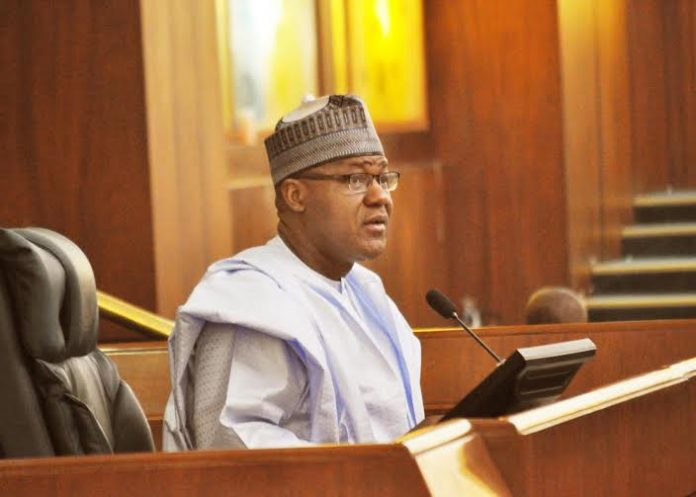The House of Representatives on Tuesday adopted the 2017 to 2019 Medium Term Expenditure Framework (MTEF) and Fiscal Strategy Paper (FSP).
this is just as President Muhammadu Buhari is billed to present the 2017 budget estimates to a joint session of National Assembly.
The House fixed the exchange rate of Naira to a dollar at N350 as against the N290 recommended by the executive.
The House also concurred on the oil benchmark of 42.50 dollar per barrel with a proposed daily production of 2.2 million barrels per day.
Consequently, the House had mandated its joint committees on Finance, Appropriation, National Planning and Economic Development, Legislative Budget and Research and Aids, Loans and Debt Management to further scrutinise the document.
Buhari had on Oct. 4, forwarded a request to the National Assembly seeking for approval of the 2017 to 2019 MTEF and FSP.
Moving the motion for the adoption of the MTEF/FSP, House Leader, Rep. Femi Gbajabiamila, said Section 11(2) of the Fiscal Responsibility Act, 2007, provides that “the MTEF shall be considered for approval with such modifications if any, as the National Assembly finds appropriate by a resolution of each House of the National Assembly”.
He further noted that Section 11 (3) of the FRA, 2007, states that “the MTEF shall contain, among other things, a macro-economic framework setting out the macro-economic projections for the next three financial years.
“The underlying assumptions for those projections and an evaluation and analysis of the macro-economic projections for the preceding three financial years”.
He said that some analysts forecasts that the shortage of forex supply may push exchange rate to as high as N350 to the dollar in the official and N500 in the parallel markets.
He recommended that “the budgeted exchange rate of N290 per dollar is unrealistic and should be moved to at N350 to encourage foreign capital inflows”.
On crude oil, he said that “the proposed oil benchmark is 42.50 dollars per barrel with a daily production of 2.2million barrels per day.
“Both seems to be realistic as oil is currently trading at about 50 dollar per barrel”.
According to him, though there is a steady improvement in oil prices, the government has chosen to play safe and benchmark oil price at 42.50 dollars, 45 dollars and 50 dollars for 2017, 2018 and 2019.
He explained that “with current price level of over 50 dollars per barrel and Nigeria’s current output at 1.9 million barrels per day, the estimates are conservative enough especially with OPEC output freeze last week”.
He maintained that the revenue target of N4.169 trillion and total expenditure of N6.687 trillion were audacious to move the country out of recession.
He said: “These are achievable only on effective combination of strong fiscal and monetary tools by government, increasing the tax base in the country.
“Curtailing militancy in the Niger Delta and injecting back looted funds, diversification of the country’s revenue sources, controlled government spending and strong anti-leakage and
anti-corruption drives.”
He stated that GDP was projected to grow at 3.02 per cent in 2017, while inflation was expected to moderate to 12.92 per cent.
Also consumption was projected to increase to N80.5 trillion.
“However, GDP growth at end of third quarter, 2016 slowed to 2.24 per cent, while inflation rose to an all-time high of 18.3 per cent.
“These budget growth levels in GDP and inflation are not achievable in 2017.”
President Buhari is expected to present a proposed budget of N7.28 trillion for the year 2017 at a joint session of both chambers of National Assembly on Wednesday.
The proposed budget represents an increase of about 19.95 per cent over the 2016 Appropriation of N6.07 trillion.






